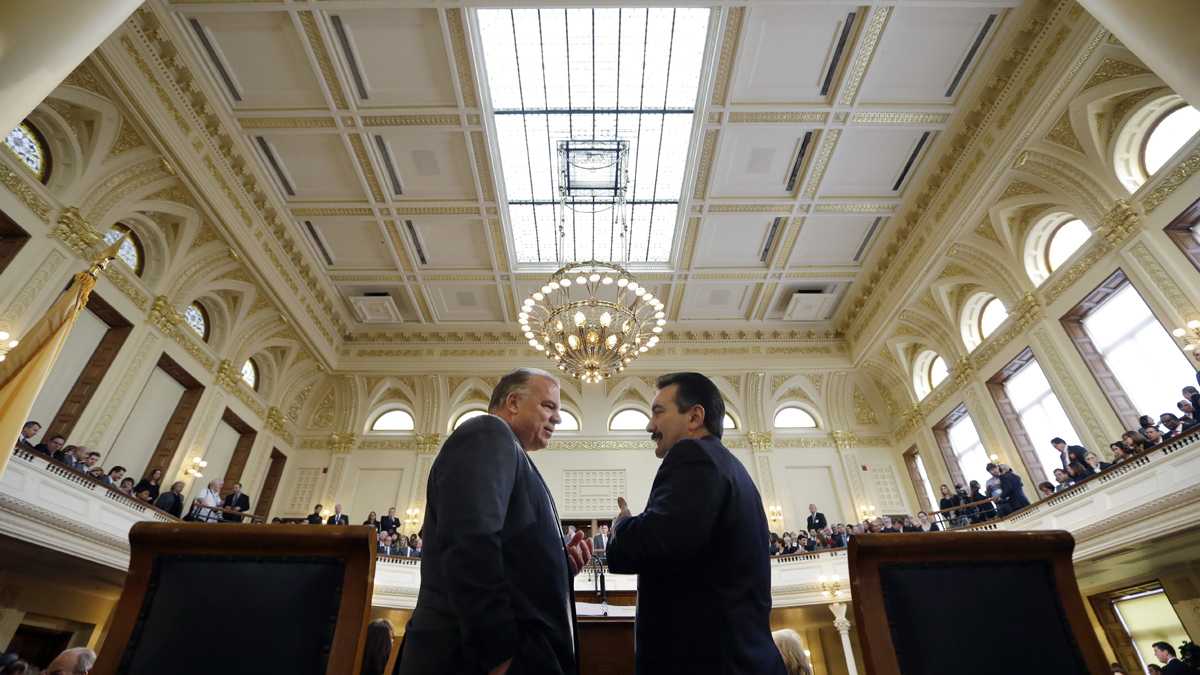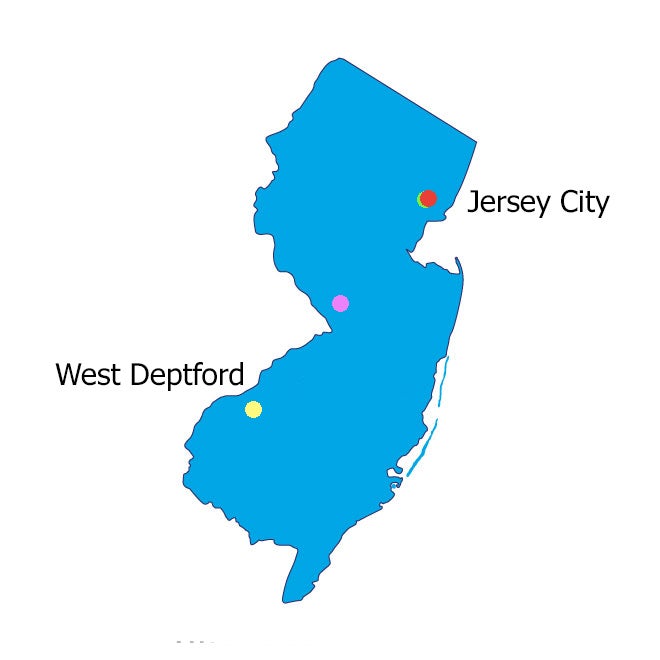Commentary: Why NJ Democrats Sweeney and Prieto can’t seem to get along

NJ Senate President Stephen M. Sweeney
The ongoing confrontations between the Democratic leaders of the Senate and Assembly, while presumably over weighty matters of public policy, in reality mask an early political strategy designed to establish a frame of reference for the 2017 gubernatorial campaign.
It is a calculated effort to tie Senate President Steve Sweeney (D-Gloucester) closely to Gov. Chris Christie, to portray him as a willing ally of a governor whose record and philosophy are anathema to Democrats and particularly to the long-time party activists who control the primary election process.
It rests on the theory that, for Sweeney, the more he shares with Christie, the farther away he moves from the Democratic Party base — organized labor in general, public employee unions in particular, women, minorities, urban leaders, and advocates for a broad array of social-service programs which have been curtailed by the governor.
The jousting between Sweeney and Assembly Speaker Vincent Prieto has occasionally taken on an unusually harsh tone, a fairly rare display of divisiveness for the leaders of a party that holds solid control of the Legislature.
Their previous cooperation on other issues has been overshadowed by their disagreements over the proposed state assumption of Atlantic City government — a step supported by Sweeney and Christie but opposed by Prieto and city government — renewal of the Transportation Trust Fund, and proposals to scale back, phase out, or eliminate the inheritance or estate taxes.
The disputes have been marked by dueling press conferences, edgy language in news releases, and accusations of political gamesmanship. There’s been speculation as well — not entirely misplaced — that resentment has been simmering in the Assembly over a feeling it’s been treated unfairly, that it’s been ignored while Christie and Sweeney strike deals and present them to the lower house for approval.
It was not altogether without credibility when Christie accused Prieto of doing the bidding of Jersey City Mayor Steve Fulop, a potential gubernatorial candidate, in blocking legislation for state involvement in Atlantic City in an attempt to deny union support to Sweeney. Whether the governor’s implicit defense of Sweeney helped the Senate president or provided another opportunity to depict him as too cozy with the chief executive is open to debate.
The speaker has steadfastly maintained that a state takeover of the financially beleaguered casino city must recognize the sanctity of public-employee labor contracts while giving the city government more time to reduce spending and solve its own problems.
 It places Prieto — and, by extension, Fulop (Jersey City) — squarely on the side of public-employee unions while serving as a subtle reminder that it was Sweeney (West Deptford) who joined forces with the governor in 2011 to muscle a series of pension-system reforms through the Legislature, including mandating an increase in employee contributions to the benefits system. The greater contributions and the freeze on cost-of-living adjustments (COLA) for retirees are all that remains of the reforms after the administration — with support from a Supreme Court ruling — failed to meet its funding obligations in their entirety.
It places Prieto — and, by extension, Fulop (Jersey City) — squarely on the side of public-employee unions while serving as a subtle reminder that it was Sweeney (West Deptford) who joined forces with the governor in 2011 to muscle a series of pension-system reforms through the Legislature, including mandating an increase in employee contributions to the benefits system. The greater contributions and the freeze on cost-of-living adjustments (COLA) for retirees are all that remains of the reforms after the administration — with support from a Supreme Court ruling — failed to meet its funding obligations in their entirety.
Sweeney re-ingratiated himself with organized labor by proposing a constitutional amendment to guarantee pension and benefits rights, but there remains some residual hard feelings over his alliance with Christie in the first place.
Prieto has also expressed his opposition to eliminating the state’s inheritance or estate taxes unless it’s part of a larger package to increase the motor-fuels tax to replenish the Transportation Trust Fund. His position places him on the side of the party’s liberal base and in line with advocacy groups who fear the loss of tax revenue — estimated at as much as $700 million — will lead inevitably to further cuts in state aid and social programs.
Sweeney has been generally supportive of a gas-tax increase accompanied by the estate or inheritance-tax reductions, arguing it is the only idea which might avoid a gubernatorial veto. His view is consistent with his belief that in a divided government, compromise and accommodation are essential if problems are to be addressed.
Sweeney and Prieto have met several times in an effort to resolve their differences, but when their discussions concluded, the stalemate remained unbroken.
Both the speaker and Fulop have dismissed suggestions that gubernatorial politics underlie the impasse. Prieto, they say, is merely attempting to wield his power to protect the contractual rights of Atlantic City municipal workers as well as ensuring that the revenue stream from the estate and inheritance taxes continues to support programs to benefit middle class New Jerseyans.
Sweeney, for his part, has made the argument that Atlantic City has shown neither the capability nor the willingness to make hard fiscal decisions and that a state takeover is the only viable alternative to avoid the city falling into bankruptcy.
Heading into the 2017 election year, the conventional wisdom holds that the governor’s office is the Democrats to lose and that the party will maintain, and possibly increase, its majorities in the Legislature.
Hudson County, with its rich and colorful history as the state’s preeminent Democratic Party stronghold, (its reputation for corruption and official misbehavior notwithstanding) has seen its grip loosen somewhat in recent years, but its leaders now see an opportunity to reassert themselves as the commanding force they once were.
While they may not all view Sweeney as a South Jersey interloper, they are not about to acquiesce in handing a virtual sure thing — the governor’s office — off to him.
Portraying the Senate President as a foot soldier in Christie’s army would be a potent weapon in a Fulop-Sweeney primary election. The third most-often mentioned potential candidate, former Goldman Sachs executive Philip Murphy, has wisely steered clear of the Sweeney-Prieto dispute.
Hudson County is clearly flexing its muscles, signaling that the road to the governor’s office runs through it. What better way to drive the message than to offer its candidate as an individual who believes Christie’s eight years have been a failure, one abetted by the Senate President from South Jersey. The groundwork for establishing that debate as the centerpiece of a primary election campaign is already underway.
Time, though, is short: Atlantic City and the trust fund are running out of money rapidly. Should the apparent governmental dysfunction continue and lead to a failure to resolve the problems, the North will point South and the South will point North.
Carl Golden served as press secretary for Republican Gov. Thomas Kean for eight years and as communications director for Republican Gov. Christie Whitman for three years. He is currently a senior contributing analyst with the William J. Hughes Center for Public Policy at Stockton University.
_____________________________________________
NJ Spotlight, an independent online news service on issues critical to New Jersey, makes its in-depth reporting available to NewsWorks.
WHYY is your source for fact-based, in-depth journalism and information. As a nonprofit organization, we rely on financial support from readers like you. Please give today.




